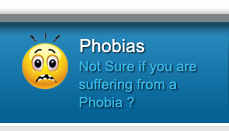Grief Counsellor
Grief does not recognize any differences in social, mental, spiritual and temporal status of its victims. It just comes when it has to - with or without any warning. Its visitation leaves us sad, grieved or traumatized depending upon the intensity of its impact.
We contract a debilitating disease that deprives us of our independence and peace of mind. The doctor diagnoses our ailment as a case of terminal illness and even predicts how long our life expectation is. The prospect of death or the impending decline in health causes deep emotional turbulence. This may be termed as anticipatory grief.
Anticipatory grief causes conflicting feelings and emotions of anxiety and distress both in the patient and also his caretakers. The feeling of grief gets more aggravated when its causes cannot be understood and resolved. The family members or the caretakers’ sad predicament grows more intense when they helplessly watch their loved one suffering in silence or crying in pain and waiting for his end. The trauma is emotionally exhausting while the patient himself is upset not only by his prolonged illness and impending death but also because of his consciousness of being the cause of grief to his family members. The grief continues its impact even after the death of the patient. Grief can come in myriads of mental and physical forms.
Now the question arises whether the affected person or his caretakers should continue to suffer helplessly and let the grief aggravate into many psychiatric problems such as anxiety, paranoia, depression, stress and so on, or, if there is some way out to live with the grief in a more stable and balanced manner ,or still better, to eliminate it altogether.
Since, quite often it is not in the hands of the sufferers to alleviate the grief on their own, it is always better to seek the guidance and assistance of a grief counselor.
A grief counselor is a sort of sociologist, psychiatrist and even spiritualist, all combined in one. He works closely with the dying person, his caretakers, friends and children and makes the inevitable outcome bearable.
There are many grief counselors out there flaunting their academic qualifications in form of long degrees, professional licenses and experience. Mental health professionals come with varied educational and philosophical backgrounds. Since you are not expected to know every aspect of grief counseling, it is more advisable to seek the guidance of your doctor who can evaluate better the initials of the grief counselor’s practical qualification and standing. Since the doctor can diagnose your condition and symptoms better, he can recommend the grief therapist whose personality, credentials and approach is compatible with your type of problem. You can easily open up and forthcoming in the counseling sessions with a grief counselor with whom you feel comfortable.
Another way to find the right grief counselor is to consult someone you know who has passed through your kind of experience. Personal feedback is more authentic and acceptable.
Grief counseling is also available online. Log on to the internet and you will hosts of grief counselors offering their assistance with charges and also references to their existing and old customers with their addresses and telephone numbers. Contact their customers at random and seek their opinion. Study their websites thoroughly. The layout, design, navigation and content of the website provide sufficient indication about the capabilities of the grief counselor. A professionally designed website devotes ample space to educate the visitors about the subject of mental health and what to expect from the expert. Make a comparative study of a few websites and form an enlightened decision.
Sometimes it pays to trust your instincts. If, however, your grief is too much for you to make your own independent judgment, seek the assistance of your trusted friend and take him along for the first session.
What Can Grief Counseling Do?







